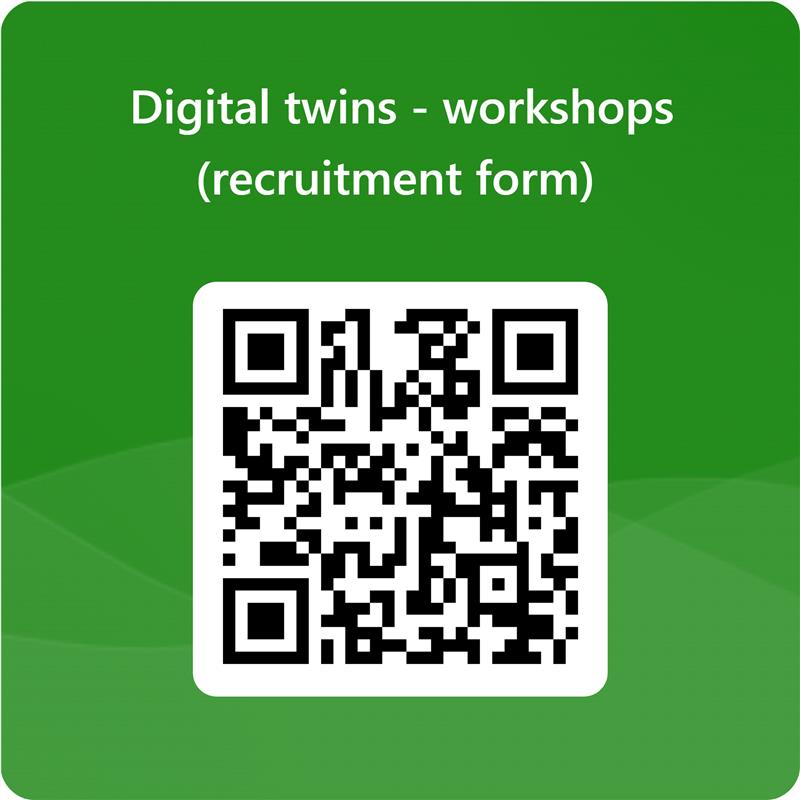Workshop
Improving the efficiency of business processes using “digital twins”

The ‘Digital Twins’ project involves the organisation of a series of theoretical and practical workshops to prepare participants for the independent implementation of the process approach in their areas of professional or scientific activity. Among other things, the participants will become familiar with the assumptions of the international standard BPMN 2.0., described by the ISO/IEC 19510:2013 standard.
The workshop will be realized in 8 two-day cycles (9 am – 4 pm), every two months, in groups of up to 12 participants.
Location: Lukasiewicz – Poznan Institute of Technology, 6 Estkowskiego Street, Poznan.
Participation in the workshop is free of charge.

Workshop program:
DAY 1 (8 teaching hours of 45 minutes)
1h
• BPMN 2.0 – origins, advantages of use, opportunities for use in practice
• Business process – key concepts
• Model as an unambiguous form of process description
4h
• Business process model – structure: organizations, business roles, definition of process boundaries, workflow and message flow, communication in business process
• BPMN 2.0 standard – basic elements of the notation: pools, lanes, activities, events, message flow and information flow, gateways, artifacts
3h
• Workshop on reading of process models
• Moderated workshop – collaborative modeling of a process
DAY 2 (8 teaching hours of 45 minutes)
3h
• Consolidation of the information acquired on the first day of the workshop
• Presentation of possibilities for practical use of commercially available tools based on the BPMN 2.0 standard. Presentation of the benefits of creating digital twins of processes using a case study example.
5h
• Case study – independent mapping of a process flow using the BPMN 2.0 standard based on a received set of information (verbal description of the process flow, process interview). It is possible to model a selected process suggested by the participants of the workshop
• Summary – discussion of the results of the participants’ work, discussion and construction of a correct map, consolidation of good practices
The organizers provide:
• Qualified trainers (2 trainers per each workshop group)
• Work in small groups, enabling an individual approach to participants’ expectations (groups of up to 12 participants)
• Training materials in Polish and English
• Air-conditioned room with overhead projector
• Catering – coffee breaks and lunch
• Possibility of consultations with the workshop leaders after the workshop (for the duration of the program)
We suggest that participants take part in the workshop with their own laptops; however, we offer the possibility of providing the necessary computer equipment upon request by the participant.

Dates of the workshops
11-12.04.2024
12-13.06.2024
06-07.08.2024
07-08.10.2024
02-03.12.2024
29-30.01.2025
26-27.02.2025 (workshop in English)
03-04.04.2025 (workshop in English)
The workshops are carried out from 9 am to 4 pm
Trainers:
Filip Nowak
Area leader – Head of Process Transformation Research Group
Center of Digital Transformation, Lukasiewicz – PIT
Initiator and head of the Process Transformation Research Group at Lukasiewicz – PIT. Methodological expert on standardised process analysis in the roles of: analyst, trainer, methodology author and chief specialist in business process change management. He is skilled in the creation of Process Digital Twins, the implementation of solutions based on the use of applications developed on no-code platforms and process robotisation (RPA). KSU/KSI consultant in process innovation and financial analysis. He has experience in the field of education and knowledge transfer. He has participated in and managed dozens of projects in the area of process analysis, both commercial and statutory – at national and European level. He is currently preparing to defend his doctoral thesis on creating process innovations using the BPMN 2.0 standard – Business Process Reengineering.
Paulina Młodawska
Chief Specialist – Deputy Manager of Process Transformation Research Group
Center of Digital Transformation, Lukasiewicz – PIT
Graduate of the Poznan University of Economics at the Faculty of International Business, with a specialisation in International Logistics. Specialist in business and systems analysis. Participant of many projects related to process analysis, both commercial and statutory, at national and European level. She has experience in the area of education and knowledge transfer – as a workshop author, trainer and university teacher. Her area of specialisation also includes the use of process analysis in the implementation of projects obtained from European funds.
Jacek Krzywy
Senior specialist – business process analyst – Research Group of Process Transformation
Center of Digital Transformation, Lukasiewicz – PIT
Graduate of the Poznan University of Technology in the field of Management and Logistics. Currently a PhD student at the Doctoral School of Poznan University of Technology within the scientific discipline: Management and Quality Sciences. He has many years of experience in carrying out business analysis projects for manufacturing and service companies, health services, logistics operators, CEP industry, public administration and non-profit organisations.
Expert in process modeling using the BPMN 2.0 standard and the creation of process simulation models. His research interests are related to low-code and no-code tools and process robotisation. He successively deepens his knowledge of the use of new tools for process analysis and simulation by actively participating in international scientific conferences.
Witold Statkiewicz
Senior specialist – business process analyst – Research Group of Process Transformation
Center of Digital Transformation, Lukasiewicz – PIT
Graduate of the Poznan University of Economics, Faculty of Commodity Sciences, majoring in Industrial Product Quality. Business analysis specialist, co-author of business analysis methodology. Participant of many projects related to process analysis, both commercial and statutory, at national and European level. He has an international experience in the area of operation of manufacturing and commercial enterprises. His research interests also include the area of corporate social responsibility and food waste prevention.
Contact
ul. Ewarysta Estkowskiego 6
61-755 Poznań, Poland
Exchange: +48 61 850 48 90
Secretariat: +48 61 850 49 00
Fax: +48 61 852 63 76
e-mail: office@pit.lukasiewicz.gov.pl
